What is a Plan?
A lot of talk is made in the financial services industry of holistic planning or comprehensive financial plans. Many planners have designations that hold planners to ideals that are sometimes met and sometimes not. Software is written to accumulate data, produce tables and spit out reports with bar, pie, line and other charts.
Is this holistic planning? What deliverable should you expect from a competent planner who is engaged to help you connect the dots in your own life and plot out your future based on your goals?
Reports go cold soon after they are produced. Balances change, as do life's circumstances. We believe that a solid financial plan provides a vision of where you want to go, along with a list of action items that you need to focus on to reach your desired destination.
A holistic plan is an action plan that gives you a clear understanding of where you are and what steps are needed to get where you want to go. A holistic plan evolves and changes and is more of an ongoing conversation than any old document to be pulled out of a drawer or a static worksheet called up in your online portal.
A holistic plan addresses liquidity and the current balance of your life. Are your assets more than your liabilities? When we start our careers, many of us have student loans, our first car payment, rent, and general beginning costs of life. Most of us start with negative net worth.
As we progress in our lives and our careers, we begin to focus on our cash flows. Are your expenses outpacing your earnings? If so, your debt is increasing, and many people who are starting out fall into a lifestyle trap of keeping up with old friends and new acquaintances in terms of cars, clothes, and consumption.
If your earnings are outpacing your expenses, you have money to decrease your debts or accumulate your assets. A solid plan seeks to answer the question: How much do you need to accumulate to achieve your desired income level within your desired timeline?
Many planners spend enormous amounts of time on college planning and debt reduction. There are prominent schools of thought that focus on nothing other than retiring debt at the fastest pace possible. Our experience has been that if you don’t save any money, you won’t have any money.
Savings create assets. Assets treated well grow overtime and nourish your life and your family’s lives. If your debt is fixed and decreasing over time, liabilities lessen over time. Additionally, inflation erodes debt while increasing the value of appreciating assets. Build the assets, avoid consumer debt and then rinse and repeat.
More thoughts on planning to come soon.
Until then, may your assets grow and your liabilities shrink.
Nothing above is meant as actionable investment advice for any person or entity. Please contact an investment professional for any advice specific to your situation. While written in good faith, most of the above is opinion, not fact.


